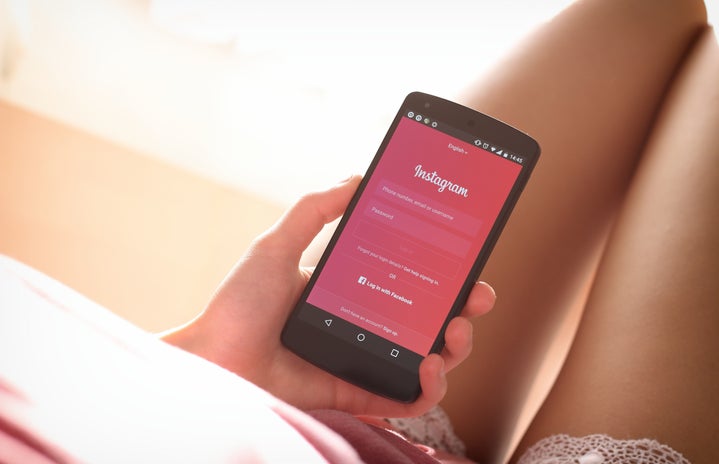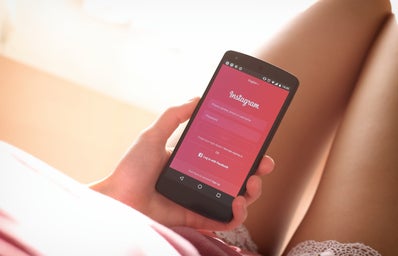A recent phenomenon I observed when scrolling through my feed or looking at my “recommended” page on Instagram are mental health advice accounts. These contain tips for numerous mental health issues, from anxiety to depression. Mental health Instagram pages often look very aesthetically pleasing, with pastel backgrounds and pretty fonts. Especially since the beginning of the Covid-19 pandemic, the amount of mental health accounts has burgeoned. At first glance, they may appear harmless. Some people might even perceive them as a step in the right direction, since they normalize conversations about mental health, which is a topic that was overlooked and not taken seriously for a long time. However, behind their innocent-looking aesthetic, these accounts can be questionable or even, some might say, extremely toxic. In this article, I will share a few of my thoughts on these accounts that appear on our smartphone screens on a daily basis.
Instagram as a substitute to a therapist
The first thing that came to my mind when thinking about mental health pages on Instagram is the fact that Instagram wants to have an increasingly large role in our lives and, in a way, alienate us from it. What is particularly striking is that a lot of the advice given on these pages is advice you usually get from your best friend when you’re down. An example to illustrate would be the countless pages on “red flags in a relationship”, “why you should move on from your ex”, “why you’re better than him” or “when you date the wrong person”.
Instagram just becomes everything in one: our best friend, our doctor, and our therapist. In most cases, if all you need is a bit of a confidence boost or some comforting words, this can be beneficial and totally fine! However, when it comes to genuine mental health issues such as anxiety, depression, or eating disorders, these pages can be a lot more problematic.
Mental health is something so incredibly personal and individual to everyone (your best friend’s anxiety symptoms might not resemble yours at all) that it is almost impossible to make sweeping statements on an Instagram post because what applies to one person might not apply to another. This is also the case with sensitive topics: some individuals may feel triggered by a certain topic, whilst someone else might find something else more difficult to read about or to see. Moreover, these Instagram posts only scratch the surface when addressing mental health issues which is normal, since these topics are unbelievably complex to tackle and are impossible to sum up on a square picture with a pastel background.
In an article by Refinery 29, a therapist gives her opinion on the countless Instagram therapy accounts. She says: “I think it’s sometimes too easy to take an account that you trust as a safe source of information, to treat it as gospel when it’s not actually tailored to you in the way a one-on-one session would be.” This statement clearly shows that one should take Instagram advice with a pinch of salt since it offers “one-size-fits-all” type of advice.
As a result, it is important to emphasize the fact that, even if these Instagram accounts make you feel better, they will not treat your mental health issues in the long term. Instagram will never replace a therapist, who, through very specific questions, years of experience, and, most importantly, a psychology degree, will be able to identify your issue and will be able to give you the solutions in order to change your thought patterns and, progressively, combat the issue you’re struggling with.
The irony of Instagram giving mental health advice
This is particularly relevant at the moment since, recently, a very interesting study by Facebook was leaked to the general public. This study proved that Instagram was detrimental to young people’s, particularly girls’, mental health. An internal confidential presentation showed shocking statements such as “We make body image issues worse for one in three teen girls” or “Teens blame Instagram for increases in the rate of anxiety and depression. This reaction was unprompted and consistent across all groups.” When released in the press, most people could relate to the findings of this study. It also implicitly sheds light on the fact that social media platforms such as TikTok, Facebook, or Instagram care mostly about their profit rather than their users’ mental health.
I, therefore, find it quite ironic to find mental health advice on a platform that is potentially responsible for countless mental health issues, such as body issues or depression. I am very aware that people’s opinions on this topic are mixed, but I am a firm believer in the phrase “You can’t heal in the same environment that broke you”. In my eyes, it is, therefore, crucial to get advice from outside the social media bubble, whether that’s from a friend or family member, or a professional.


